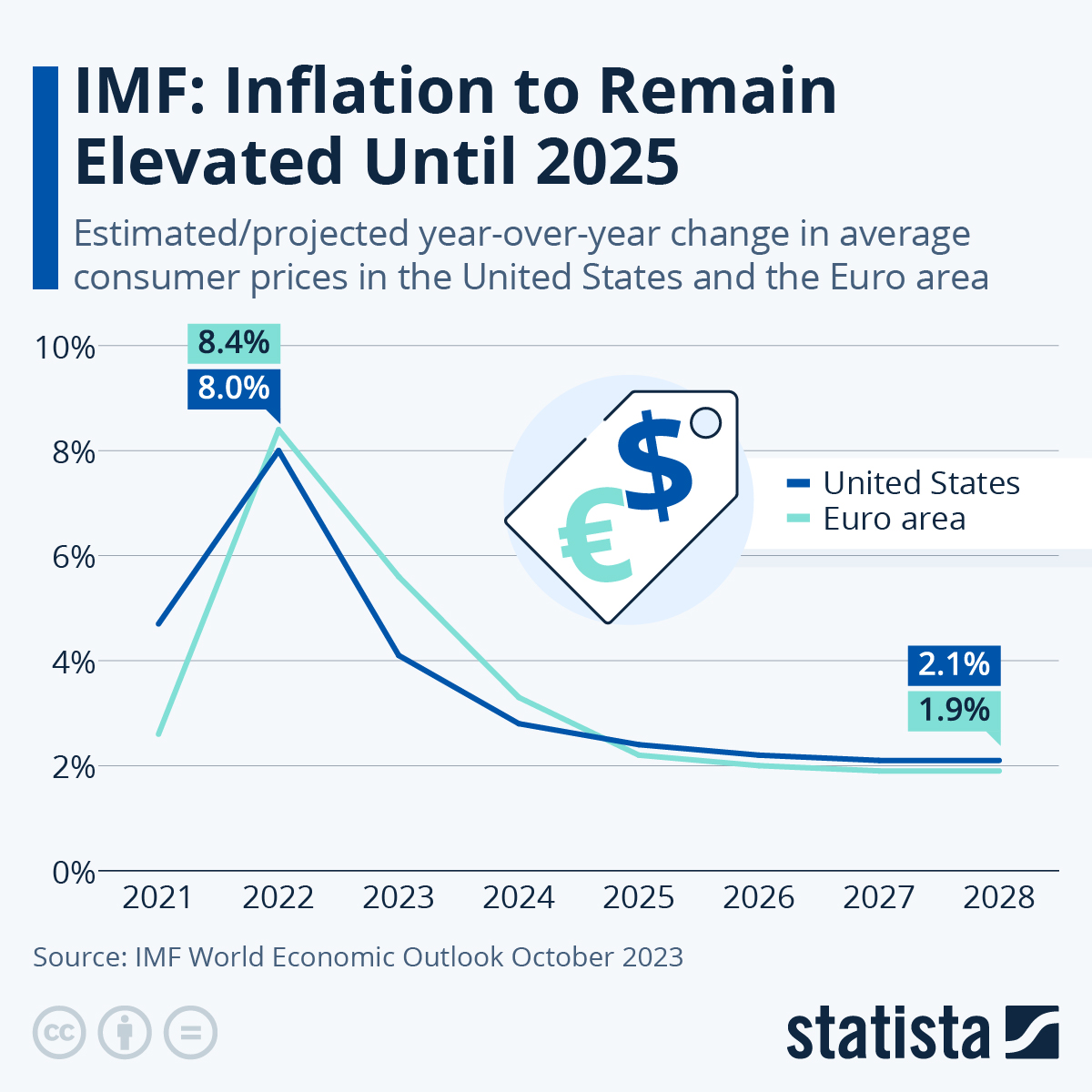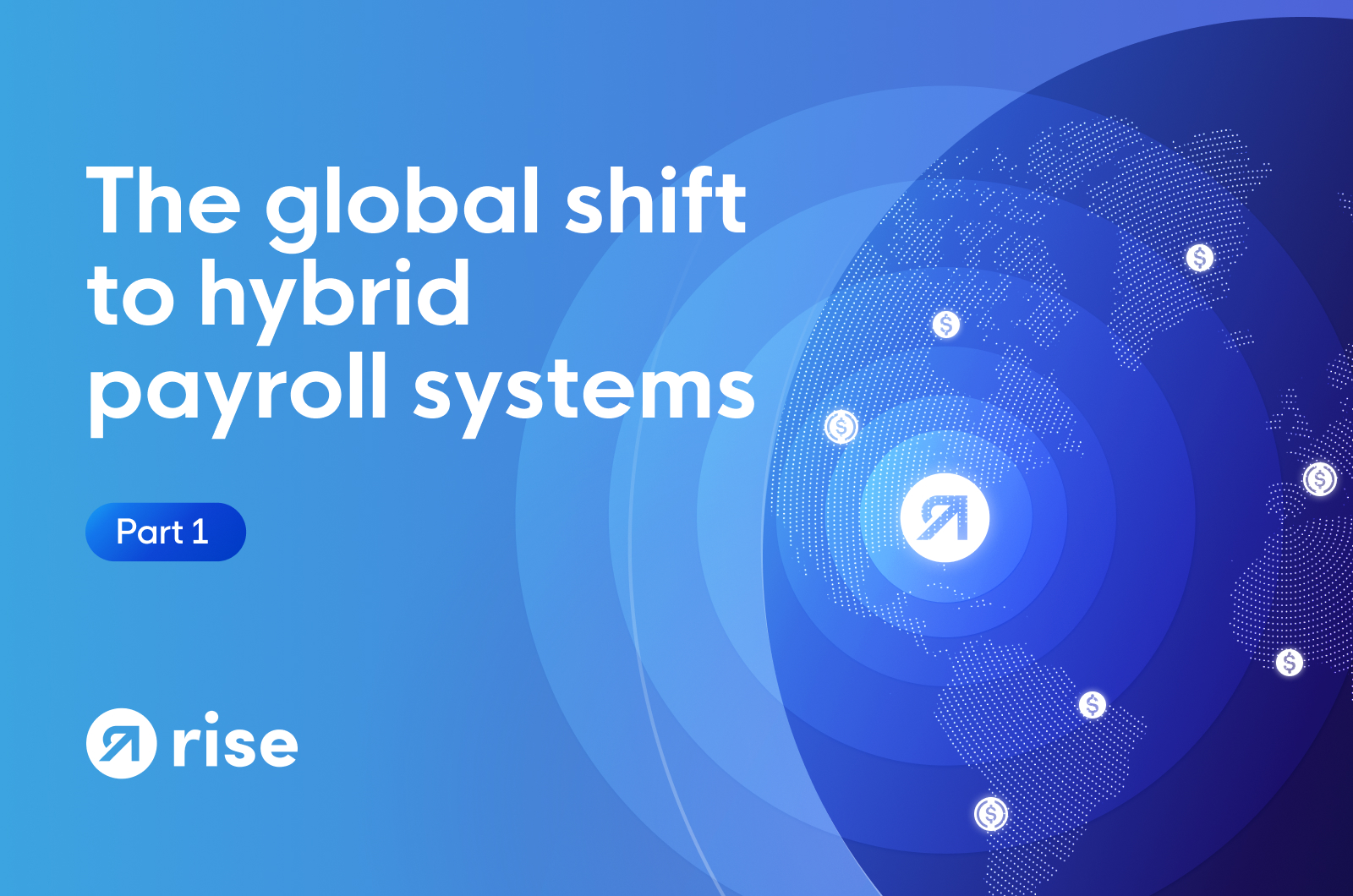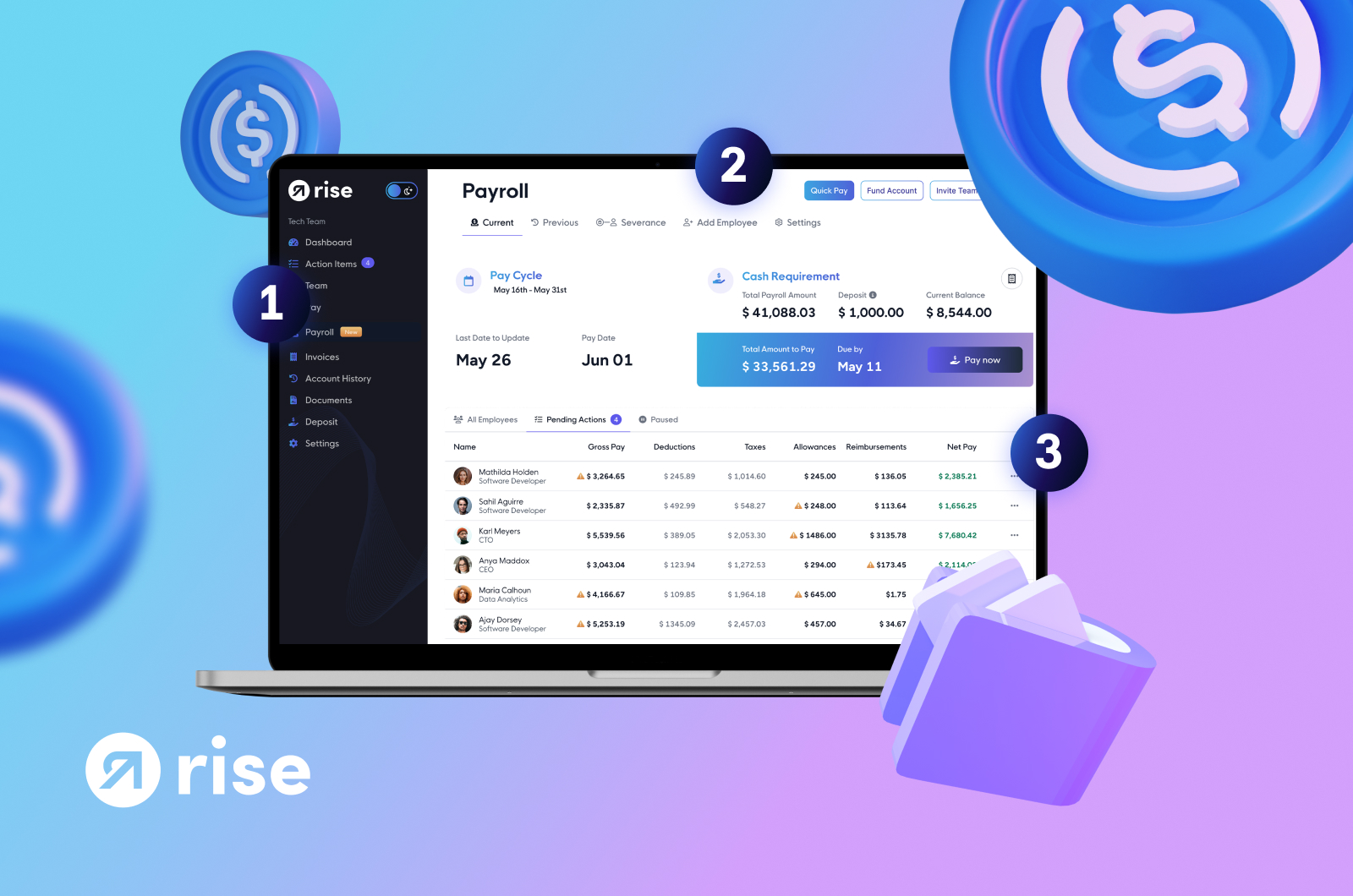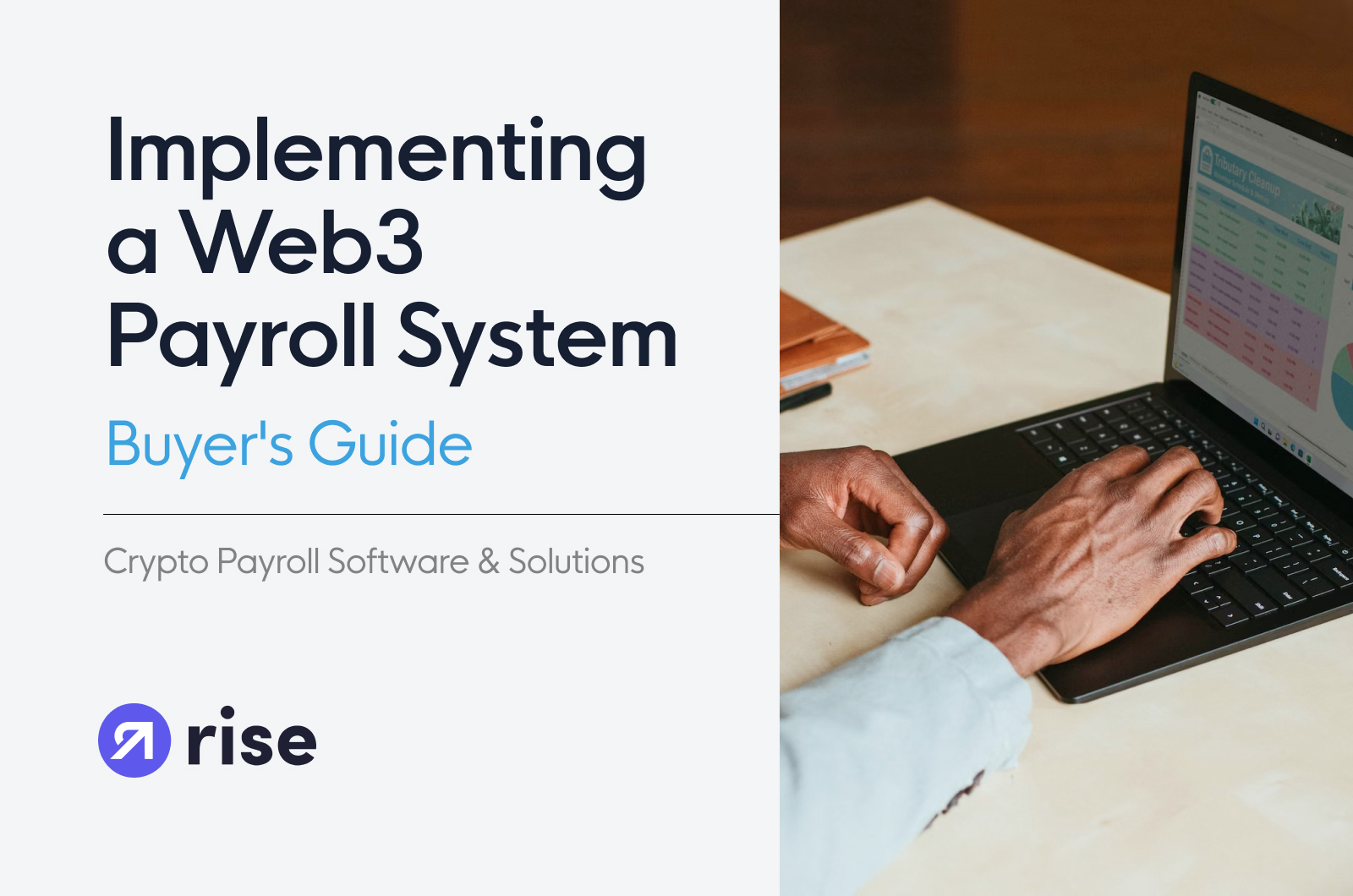In today’s rapidly evolving economic landscape, the traditional methods of payroll management are being reevaluated and reshaped by the forces of globalization, technological advancements, and shifting workforce dynamics.
The future of payroll is unmistakably veering towards hybrid and dual payment systems that incorporate both fiat currencies and cryptocurrencies. This transformation is driven by a confluence of global economic issues, macroeconomic challenges, the rise of digital finance technologies such as stablecoins and decentralized finance (DeFi), and a growing demand for financial empowerment and flexibility in the workplace.
This first part in a 2-part series explores the reasons behind this shift, its implications, and the key factors propelling the adoption of hybrid payroll systems.
Global Economic Trends
The global economy is characterized by volatility, with inflation rates fluctuating unpredictably across different regions. Traditional currencies, while stable in many developed economies, can be subject to severe inflation or deflation in countries experiencing economic instability, war, or government corruption. This volatility undermines the value of earnings and savings, pushing individuals and businesses towards alternative stores of value and mediums of exchange. Cryptocurrencies, particularly stablecoins pegged to fiat currencies or commodities, offer a viable solution by providing stability and global acceptability.
Moreover, the issue of financial inclusion remains a significant challenge. A considerable portion of the global population remains unbanked or underbanked, particularly in regions with political instability or underdeveloped financial infrastructure. Cryptocurrencies offer a unique advantage here, enabling individuals to participate in the global economy directly through their smartphones or internet-connected devices, bypassing traditional banking systems.
Forecasting into 2024, economic analysts anticipate a year of "moderated" growth and inflation, with the International Monetary Fund (IMF) projecting global growth at 3.1%. This growth is expected to be primarily driven by the USA and several large emerging markets, including the BRICS countries (Brazil, Russia, India, China, South Africa) rather than the traditional Western countries associated with such growth. However, it's important to note that geopolitical tensions pose significant risks to the global economy.
Conflicts in Eastern Europe (Between Russia and Ukraine) and the Middle East (Israel and Palestine) can and have had profound effects on variables like food and energy supplies, introducing uncertainty and powerful inflationary pressures felt on a global scale.

There is also the notion of changing global alliances that cannot be ignored. Many of the world’s likely future superpowers have begun their processes of de-dollarization. With the definitive base international base currency of tomorrow unknown, hybrid payment systems serve as a means to shield workers against potential (and likely) volatility within the forex markets by allowing them to be compensated in digital currencies.
Additionally, one cannot ignore the significant institutional adoption of cryptocurrencies. The recent launch of BlackRock's first Bitcoin exchange-traded fund (ETF), along with other major institutional players embracing such currencies, signals a more positive outlook towards crypto from the financial world. This adoption may extend to business practices—specifically, payroll—where adopting hybrid payroll systems becomes increasingly critical as firms seek to attract and retain talent in an increasingly globalised yet fragmented world.
In this rapidly changing economic landscape, it is increasingly crucial for payroll systems to be designed with resilience in mind. Businesses must navigate inflationary pressures, geopolitical risks, and regional economic disparities. Therefore, the need for payroll solutions that can adapt to these changing financial landscapes becomes even more pressing. Hybrid payroll providers such as Rise emerge as a definitive solution, offering flexibility through faster transactions, reduced fees, and the provision of currency options that help workers stave off inflation and currency devaluation.
Stablecoins and the Popularity of DeFi
The emergence of stablecoins, such as USDC and USDT, has been a game-changer in the crypto space, offering the benefits of cryptocurrencies such as security, transparency, and speed, without the volatility typically associated with digital assets like Bitcoin and Ethereum. This stability is crucial for payroll purposes, ensuring that employees receive their full wages value at the time of payment.
Decentralized Finance (DeFi) platforms have further revolutionized how individuals and businesses interact with financial services. DeFi offers a wide range of financial instruments without the need for traditional financial intermediaries, from earning interest on crypto assets to borrowing and lending services. For payroll, DeFi platforms provide innovative solutions for salary distribution, savings, and investments, contributing to a more empowered and financially literate workforce.
The Rise of Remote and Global Workforces
The proliferation of remote work and the increasing number of global contractors, especially in regions affected by conflict or corrupt governments, underscore the need for a more inclusive, flexible, and secure payroll system.
Hybrid payroll systems address these needs by facilitating cross-border payments without the exorbitant fees and delays associated with traditional banking transfers. This not only benefits workers in these regions but also empowers companies to tap into a global talent pool without the logistical nightmares of traditional payroll processes.
Financial Empowerment and Workplace Flexibility
The shift towards hybrid and dual payment systems is also driven by the changing dynamics of the workplace. Today's workforce demands greater flexibility, autonomy, and financial empowerment. Offering payment options in both fiat and crypto can significantly enhance an employer's value proposition, helping to attract and retain top talent in a competitive global market. This flexibility allows employees to choose how they receive their pay based on their personal preferences, financial goals, and the economic context of their resident country.
Hybrid payroll systems also reflect a broader movement towards financial empowerment, giving employees more control over their earnings. Additionally, by enabling payments in crypto, employees can easily access DeFi platforms for investment, savings, and even loan services, fostering a culture of financial responsibility and savvy.
The Need for Hybrid Payroll Solutions
Traditional payroll systems, with their inherent limitations, may not be ideal in a fast-changing financial landscape. Many businesses still rely on outdated structures that are prone to errors, inefficiencies, and high costs. Hybrid payroll systems offer a way to overcome these challenges and bring numerous advantages to both employers and employees.
For employers, hybrid payroll provides streamlined processes, reduced costs, and improved efficiency. With faster transaction capabilities and streamlined cross-border payments, businesses can optimise their payroll operations from both on and off-chain treasuries and deliver funds to employees more efficiently. Hybrid payroll also offers businesses the ability to navigate complex payroll regulations in different countries, ensuring compliance while still maintaining flexibility.
Employees stand to benefit greatly from hybrid payroll solutions as well. Faster access to funds and reduced transaction fees can improve their financial well-being. Moreover, hybrid payroll systems provide currency diversification options, protecting employees against inflation and currency devaluation in their respective countries. By empowering employees to manage their finances better, hybrid payroll helps promote financial stability and planning for the future.
Addressing Challenges and Considerations
While the adoption of hybrid payroll systems presents numerous benefits, it is not without its challenges. Businesses need to consider several factors when implementing hybrid payroll solutions. Regulatory compliance is a crucial aspect that cannot be overlooked, as different countries may have varying payroll regulations and tax requirements.
Data security is another critical consideration. Businesses must ensure that proper measures are in place to protect sensitive employee information and financial data. Collaborating with experienced payroll providers can help mitigate these risks and ensure compliance with industry standards.
Resistance to change can also pose a challenge when transitioning from traditional payroll systems to hybrid payroll. HR, Finance and Operations professionals working in both web3 and web2 industries need to communicate the benefits of these innovative systems effectively, addressing concerns and showcasing success stories from other organizations that have successfully implemented hybrid payroll. It is good to note however, that workers being hired from countries with blatant inflationary issues are less likely to require such communicative measures as they are more keenly aware of the benefits.
In conclusion, the world is undergoing significant changes that affect the way businesses operate, including the realm of payroll. The growing trends of moderated economic growth, geopolitical tensions, and institutional adoption of cryptocurrencies create an urgent need for resilient and adaptable payroll systems. Hybrid payroll emerges as the solution to these challenges, offering faster transactions, reduced fees, and currency options that can help businesses navigate uncertainties while attracting and retaining talent.
As we move throughout 2024 and beyond, it is essential for businesses, founders and HR professionals to recognize the potential of hybrid payroll systems. By embracing its benefits, organizations can enhance their payroll processes, improve employee financial well-being, and gain a competitive edge in the global marketplace.
The world is unlikely to stay in its current form forever and by using services like Rise, you can ensure that your business is prepared for the most likely trajectory and proliferation of digital currency demand.


















